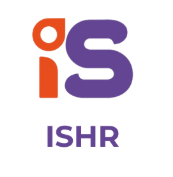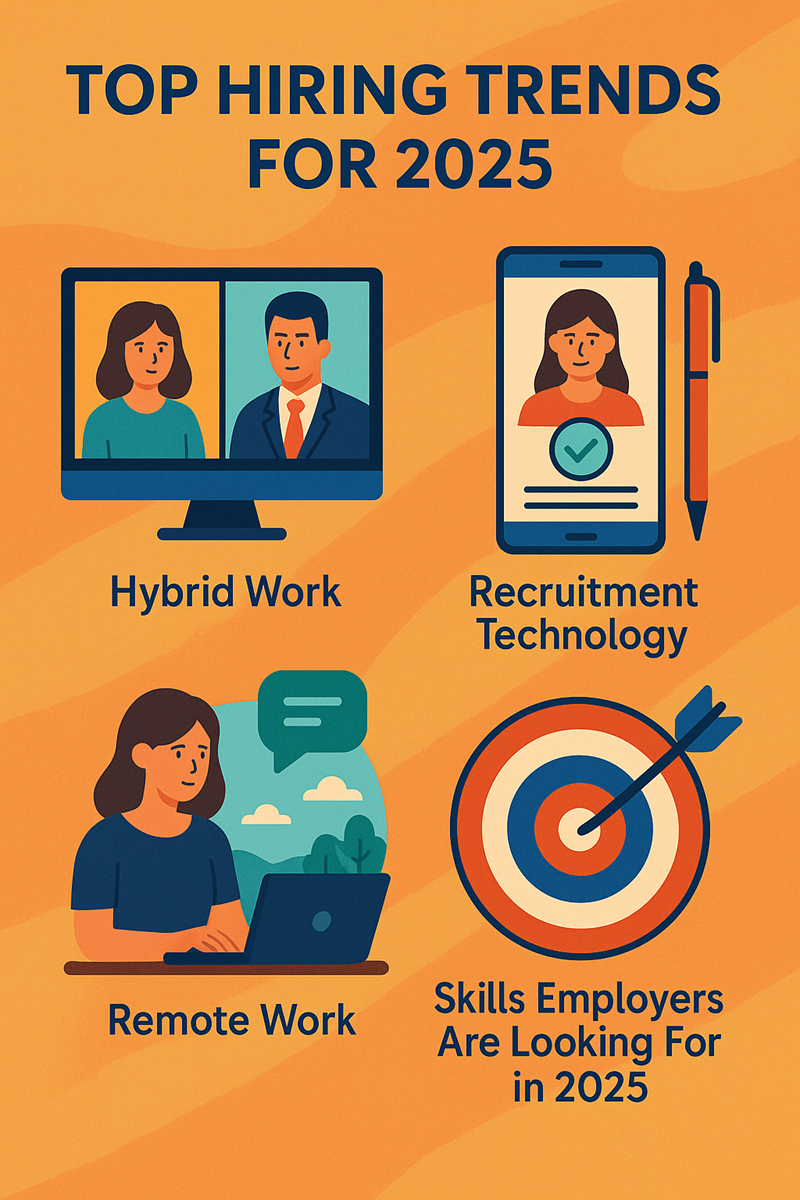As 2025 unfolds, the hiring landscape is experiencing transformative change driven by digital innovation, evolving workforce expectations, and an intensified focus on inclusivity and flexibility. The traditional model of recruitment has been disrupted, giving way to a more dynamic and human-centered approach that integrates advanced technology, global mobility, and purpose-driven employer branding. To stay competitive in this new era, HR leaders and business executives must understand and adapt to the top hiring trends for 2025, which are reshaping how organizations attract, hire, and retain top talent across the globe.
Hybrid Work Becomes the Norm, Not the Perk
In 2025, the hybrid work model will have evolved from a crisis solution to a standard organizational practice. Companies are no longer debating whether to adopt hybrid work; they’re perfecting it. Employees now expect flexibility as a given, not a benefit, and employers are responding by creating work environments that allow seamless movement between remote and on-site work.
This shift has led organizations to invest in redesigned office spaces that foster in-person collaboration when needed, while simultaneously upgrading digital infrastructure to support remote teams. Performance management systems have been restructured to evaluate outcomes rather than time spent at a desk, and new policies are being developed to ensure equity between remote and in-office employees. Hybrid work is no longer a future trend; it’s a business imperative that influences hiring strategies, company culture, and employee retention in 2025.

Recruitment Technology Drives Speed and Precision
One of the most significant hiring trends of 2025 is the rise of recruitment technology powered by artificial intelligence and machine learning. The traditional resume-review process is being replaced by AI-driven platforms that can quickly analyze hundreds of applications, identify skill matches, and even predict candidate success within specific roles.
Applicant tracking systems (ATS) have become more intelligent, allowing recruiters to automate repetitive tasks like interview scheduling, candidate scoring, and follow-ups. Chatbots are now handling first-round screenings and answering FAQs in real-time, while AI tools are analyzing video interviews for speech patterns, engagement, and emotional cues. These advancements not only reduce time-to-hire but also minimize human bias and improve the quality of hires by relying on data-backed decisions.
For recruiters, this means a shift from administrative tasks to strategic talent engagement — building relationships, interpreting data insights, and refining employer branding efforts to attract high-quality applicants.
Remote Work Expands Access to Global Talent
The explosion of remote work has broken down geographic barriers, enabling organizations to build global teams with access to a broader, more diverse talent pool. In 2025, location is no longer a constraint; it’s an opportunity. Forward-thinking employers are recruiting top talent from around the world, leveraging virtual work environments to tap into niche skill sets and reduce hiring costs.
To support this trend, companies are turning to Employer of Record (EOR) services, which handle local compliance, taxation, and payroll for remote workers in international markets. Communication tools like Slack, Microsoft Teams, and Notion are being used in combination with asynchronous work strategies to bridge time zones and cultural differences.
However, hiring remotely at scale also presents challenges such as maintaining engagement, ensuring data security, and avoiding communication silos. To address these, HR teams are prioritizing digital onboarding programs, inclusive communication policies, and virtual team-building practices that support cohesion across borders.
Skills-Based Hiring Is on the Rise
In 2025, skills-based hiring is overtaking traditional credential-based recruitment as organizations prioritize what candidates can do over where they studied. As industries face rapid digital transformation, employers are focusing on specific competencies, technical capabilities, and adaptability rather than just degrees or years of experience.
With the rise of online education, micro-credentials, and professional certification platforms like Coursera, Udemy, and edX, candidates now have more avenues to demonstrate their proficiency in high-demand areas. Whether it’s cloud computing, machine learning, or user experience design, candidates with validated skills are landing top roles even without conventional academic backgrounds.
Employers are increasingly using skills assessments, coding tests, and portfolio reviews to evaluate applicants. Platforms like TestGorilla and Codility are helping recruiters make more informed decisions by offering standardized, unbiased assessments tailored to specific job roles. This shift promotes greater workforce diversity, reduces entry barriers, and ensures that organizations hire candidates truly equipped to meet modern job demands.
Employer Branding Is a Strategic Imperative
In a market where top talent has choices, employer branding has emerged as a core hiring strategy in 2025. Job seekers are thoroughly researching potential employers, evaluating not just compensation and benefits but also company culture, leadership transparency, and alignment with personal values. As such, companies must actively cultivate their employer reputation both online and offline.
Organizations are leveraging platforms like LinkedIn, Glassdoor, and Instagram to share employee stories, showcase workplace initiatives, and provide an authentic glimpse into their day-to-day culture. Employee-generated content, behind-the-scenes videos, and thought leadership articles are now crucial for attracting candidates who align with the company’s mission.
Moreover, branding isn’t just about attracting applicants; it also boosts engagement, retention, and internal advocacy. Businesses with strong employer brands see lower turnover and higher application rates, making it a cost-effective and sustainable strategy for long-term recruitment success.
DEI (Diversity, Equity & Inclusion) Shapes Every Hiring Decision
Diversity, equity, and inclusion (DEI) are no longer optional initiatives; they are business-critical mandates. In 2025, organizations are being held to higher standards by both candidates and consumers when it comes to fair hiring practices and inclusive cultures. DEI isn’t a separate department anymore; it’s embedded into every aspect of recruitment, from sourcing and interviewing to onboarding and career advancement.
To reduce bias and improve representation, companies are rewriting job descriptions to be more inclusive, using blind recruitment tools to hide names and demographics, and implementing diverse hiring panels to ensure fair evaluation. AI tools are also helping detect biased language in job ads and optimize outreach to underrepresented communities.
Moreover, transparency is key; candidates expect to see diversity metrics, pay equity reports, and clear commitments from leadership. Organizations that fail to prioritize DEI in hiring risk losing credibility, engagement, and access to top-tier talent.
Freelancers and Project-Based Roles Surge
The freelance economy is booming, and in 2025, more companies are turning to project-based hiring as a strategic way to remain agile in uncertain markets. The rise of digital nomads, gig workers, and independent professionals means that employers can scale talent up or down quickly based on business needs.
Instead of committing to full-time roles, businesses are using platforms like Upwork, Fiverr Pro, and Toptal to bring in specialized experts for short-term projects from web development to digital marketing to legal consultation. This trend is especially prevalent in the tech, creative, and consulting industries.
To manage this new workforce segment, companies are building internal talent clouds, creating standardized freelance contracts, and offering remote onboarding experiences that reflect the brand culture. This blended model of full-time employees and contingent workers allows organizations to stay nimble, innovate faster, and reduce fixed overhead costs.
Candidate Experience Drives Competitive Advantage
In 2025, the candidate experience is a crucial differentiator in talent acquisition. From the moment an applicant visits a careers page to the onboarding of a new hire, every interaction matters. Poor communication, complex applications, or delayed feedback can cause top candidates to drop off and damage an employer’s reputation.
Forward-thinking companies are streamlining their hiring processes with mobile-friendly applications, transparent job descriptions, and automated interview scheduling tools. Personalized messaging, timely updates, and constructive feedback are becoming standard expectations.
Moreover, onboarding has gone digital, with virtual orientation sessions, online learning platforms, and welcome kits shipped to new hires’ homes. A smooth, thoughtful, and engaging candidate journey not only improves hiring outcomes but also lays the foundation for long-term employee engagement and loyalty.
Conclusion: Building a Future-Ready Hiring Strategy in 2025
The future of hiring in 2025 is marked by innovation, inclusion, and agility. Employers that embrace hybrid and remote work, invest in recruitment technology, focus on skills-based hiring, and build inclusive cultures will not only attract the best candidates but also position themselves as leaders in a highly competitive talent market.
Understanding and implementing these top hiring trends is not just about staying relevant. It’s about future-proofing your workforce in an era defined by change and opportunity.

